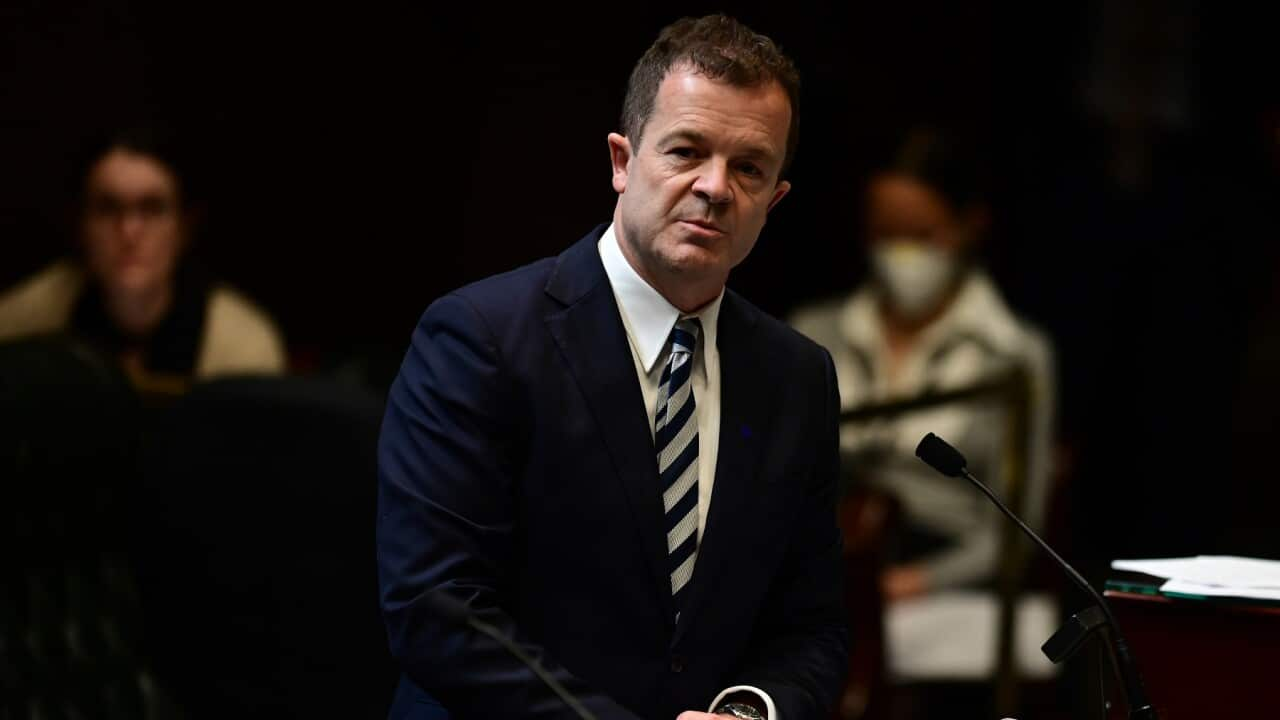This article contains references to domestic violence.
The NSW government has committed to outlawing the historically overlooked form of intimate abuse known as coercive control following an inquiry.
Attorney-General and Domestic and Sexual Violence Prevention Minister Mark Speakman released the government's response on Saturday, indicating support for 17 of the inquiry's 23 recommendations.
The remaining six have "been noted as further consideration continues".
Some of the recommendations being adopted include the introduction of a new stand-alone offence for coercive control as well as amendments to existing laws.
"No person deserves to live in fear and it is part of our responsibilities in government to uphold the safety and human dignity of all of our citizens," Mr Speakman said.
Domestic Violence NSW chief executive Delia Donovan said making coercive control an offence "presents a significant opportunity to improve the safety and wellbeing of victim-survivors across NSW", noting "thorough consultation" will be required along with training for health and law enforcement staff and further community awareness.
Coercive control "involves patterns of abuse that have the cumulative effect of denying victim-survivors their autonomy and independence" and "can include physical, sexual, psychological or financial abuse", NSW Mental Health and Women Minister Bronnie Taylor said.
Community awareness of coercive control has increased in recent years.
It is now more widely recognised as a form of abuse as well as a red flag.
"Intimate partner homicide in NSW is typically preceded by coercive control often without any recorded physical violence," Mr Speakman said.
The NSW Coroner's domestic violence death review team notes in its most recent report that a number of its cases were not preceded by an evident history of physical violence, and that some offenders actually refrained from physical violence to avoid attracting police attention.
Instead, they used "extreme manipulation and controlling behaviours to attempt to control and limit their victim's freedom and rights".
This includes things like, but not limited to: isolating them from friends and family, monitoring their communications, controlling their finances or covertly tracking them using spyware or other settings on their mobile phone.
The people they inflicted this control on often did not know they were being abused and thought what they were experiencing was "part of ordinary relationship dynamics", the report notes.
Legislation to combat coercive control is being considered or is in the process of becoming law in every state and territory in Australia.
Some already recognise coercive control under civil law.
Tasmania has had laws addressing coercive control across multiple pieces of legislation since 2004. However, a 2017 report by Deakin University researchers published by the University of Tasmania Law Review found coercive control offences have "only rarely been prosecuted".
If you or someone you know is impacted by family and domestic violence, call 1800RESPECT on 1800 737 732 or visit 1800RESPECT.org.au. In an emergency, call 000.











